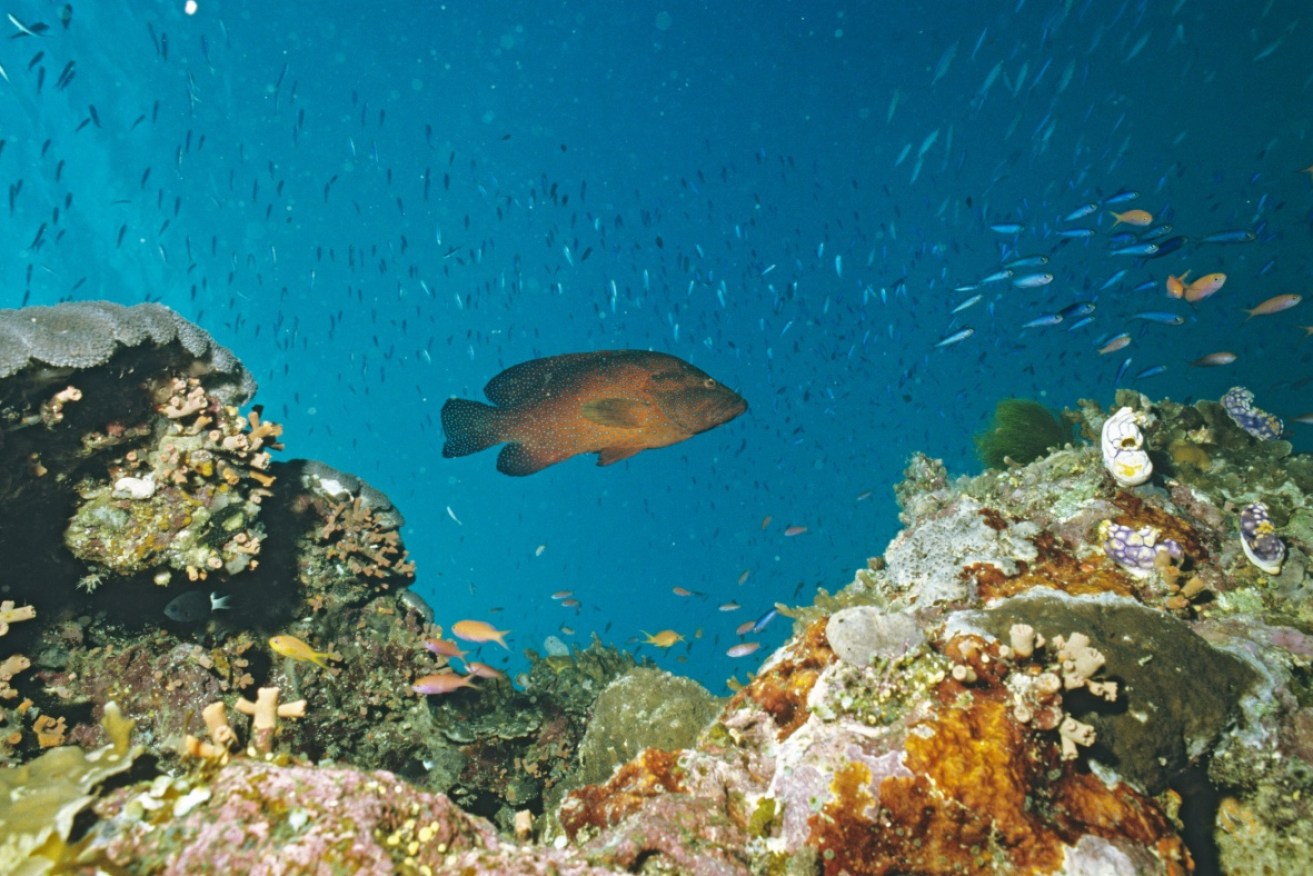‘RIP Great Barrier Reef’: Strongly-worded obituary goes viral


The Great Barrier Reef Foundation received $444 million from the federal government. Photo: Getty
A sensational obituary for Australia’s Great Barrier Reef has gone viral, prompting an angry outcry from scientists and a renewed interest in the status of the coral bleaching crisis.
In the article, published by Outside Magazine, writer Rowan Jacobsen paid tribute to the Heritage-listed landmark, which he said “passed away in 2016 after a long illness. It was 25 million years old”.
Mr Jacobsen blamed the Australian government for the reef’s fate, claiming no “serious efforts” were made to save it.
“On the contrary, attempts to call attention to the reef’s plight were thwarted by the government of Australia itself, which in 2016, shortly after approving the largest coal mine in its history, successfully pressured the United Nations to remove a chapter about the reef from a report on the impact of climate change on World Heritage sites,” Mr Jacobsen wrote.
Mr Jacobsen remembered the largest living system on earth as “an extremely active member of its community” that would “never recover” from the widespread bleaching caused by warmer water temperatures – a result of climate change.
However, a preliminary government report published on Thursday told a different story, revealing 22 per cent of the reef had died from bleaching but three-quarters of the coral had survived.
The Outside article has been slammed on social media and by experts for doing more harm than good to the reef’s cause.
“By stating that the Reef is dead, people will move on to other things,” one Facebook user commented on the photo.
“It’s great clickbait, but it hurts efforts to save the Reef.”
Russell Brainard, chief of the Coral Reef Ecosystem Program at NOAA’s Pacific Islands Fisheries Science Center, told HuffPost there was still hope.
“These natural systems do have some ability to be resilient and bounce back,” he said.
The article has received international attention from environmentalists concerned about the popular tourist destination, which is comprised of nearly 3000 individual reefs.
I mean, I dont' write obits but I'm pretty sure you're only meant to publish when the person in question is dead? https://t.co/QIu64s7U7b
— Ed Yong is not here (@edyong209) October 14, 2016
While experts encouraged the public not to write the reef off just yet, they cautioned bleaching could continue to cause massive damage if efforts weren’t made to halt it.
“For those of us in the business of studying and understanding what coral resilience means, the article very much misses the mark,” Kim Cobb, a professor in Georgia Tech’s School of Earth and Atmospheric Sciences, told the LA Times.
“Bleaching events are worrisome because if the coral misses this key food source from the algae for too long it will literally starve to death. But, if the water temperature comes back down, it will welcome the algae back.”
Watch the latest government report on coral bleaching
https://www.youtube.com/watch?v=gbOLrwBceKI








